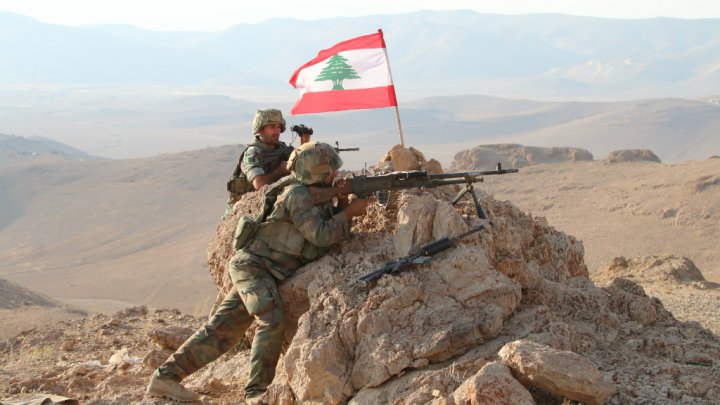
By Yousif Kalian
In the past few weeks, the crown Prince of Saudi Arabia Mohammad bin Salman (MBS) has worked to consolidate power in the country by quashing his rivals through a corruption campaign. In line with other efforts to consolidate and project power, Saudi Arabia appeared to have pushed its patron Lebanese Prime Minister Saad Hariri to step down from his seat in order to put pressure on Iran’s proxy Hezbollah, which is part of Lebanon’s coalition government.According to several reports, the PM was under house arrest in the Saudi capital of Riyadh for several days, before being released through the intervention of France’s president Emmanuel Macron.
This move is part of Saudi Arabia’s campaign to try and combat Iran’s regional role, from launching an air campaign against Houthi forces in Yemen two years ago to its recent moves to try to restore and normalize diplomatic relations with Iraq. Saudi Arabia’s desire to combat Iranian influence is in synchronization with the Trump administration’s new hard line policy on Iran, however in seeking to counter Iran and Hezbollah, further economic or military escalation by Saudi Arabia might destroy Lebanon and, in turn, actually work to empower Iran.
Lebanon’s Role in the Middle East
In many ways, Lebanon is the keystone of what holds the Middle East together. If Lebanon were to be engulfed in a regional proxy war, the consequences for U.S. national security and regional stability would be devastating. Hezbollah was born out of the instability brought on by the Lebanese civil war, and a situation which leads to more war in Lebanon will only enable Hezbollah to grow and Iran to further encroach.
The status quo before Hariri’s resignation is favorable to a situation where the government collapses and Israel or Saudi Arabia launches strikes inside the country. Israel especially has made no secret of its intent to lead a blow to Lebanon which would bring the entire country to its knees and destroy its infrastructure.
With over 2 million Syrian refugees in the country, Lebanon has struggled to accommodate a refugee population equal to nearly a half of its native population, which has resulted in exorbitant pressure on Lebanon’s resources. Further escalation will lead to these refugees, and hundreds of thousands of new Lebanese refugees, to scatter across the already unstable Middle East and Europe.
Lebanon is a small country, and in trying to target Hezbollah and its allies, an attack on Lebanon will equally damage Lebanon’s Western-oriented Sunnis and Christians, driving moderates toward extremism and perhaps plunging Lebanon into sectarianism and civil war. Lebanon is the last bastion of co-existence in the region, where 18 officially recognized components live side by side in relative harmony. In a post-ISIS Middle East, Lebanon’s existence alone defies ISIS’s apocalyptic vision of a black and white “us versus them” world. This fragile peace exists despite Hezbollah’s grip on the country, and any muscle-flexing in Lebanon will shatter the mosaic that exists and empower Iran’s proxy to spread its control throughout the rest of the country.
How To Effectively Fight Hezbollah and Iran
The status quo in Lebanon is not ideal, however it is better than the outcome it seems like Saudi Arabia has been pushing for recently and the United States should work to restrain this. There is no easy way to fix the Hezbollah problem in Lebanon; however there are smarter ways to combat Hezbollah’s influence. When Lebanon’s civil war began in the 1970s, the Lebanese Armed Forces (LAF) were fractured and militias like Hezbollah were able to gain power because of that vacuum.
American aid to Lebanon’s military is relatively inexpensive, and it gives the Lebanese government leverage over Hezbollah by ensuring the state has firepower to compete with Hezbollah if worse comes to worse. Without the LAF, Hezbollah would have a complete monopoly over Lebanon’s security situation. The LAF, however imperfect has been involved in extensive anti-ISIS and anti-Al-Nusra operations inside Lebanon and Hezbollah has actively worked to avoid using areas where the LAF is known to operate. Although Israeli military officials claim that Hezbollah is using American military equipment through the LAF, this has been unconfirmed and subject to wide speculation.
In Congress right now, H.Res.252 proposes to recognize that “the Lebanese Armed Forces (LAF) as the sole institution entrusted with the defense of Lebanon’s sovereignty” and it supports “strengthening U.S. partnerships with the LAF, particularly through the global coalition to defeat the Islamic State of Iraq and Syria (ISIS).”
The resolution also addresses other issues destabilizing Lebanon, such as disarming all armed groups in Lebanon and the establishment of safe zones in Syria. H.Res.252 works to achieve a future of Lebanon in which the national security interests of the United States — and even Saudi Arabia — are achieved without destroying Lebanon.
An American commitment to Lebanon’s security and stability is the best way to combat Iranian influence in Lebanon, preserve the mosaic of Lebanon’s diverse society and ensure regional stability.
Yousif Kalian is an analyst who focuses on Iraq, Syria, Kurdish issues and religious minorities. He currently works for In Defense of Christians, and was previously a Research Assistant at the Washington Institute for Near East Policy. He has been published in the American Interest, the Washington Institute for Near East Policy, the International Centre for Counter-Terrorism and elsewhere.
Originally published in the Hill

Leave a Reply
You must be logged in to post a comment.